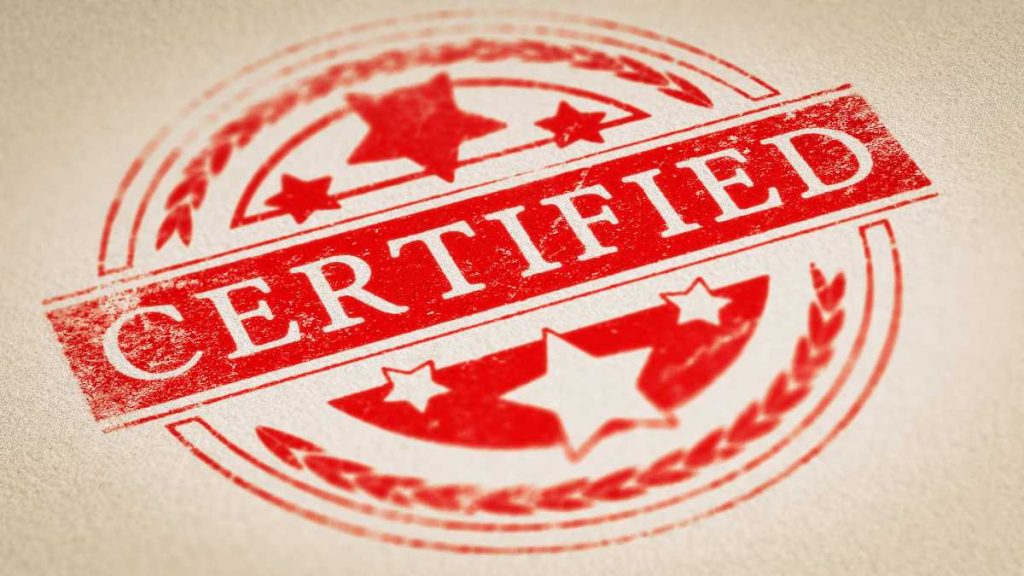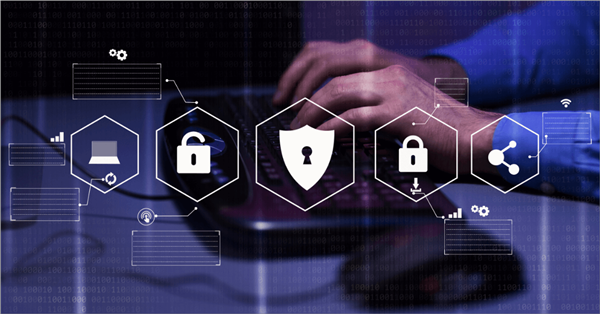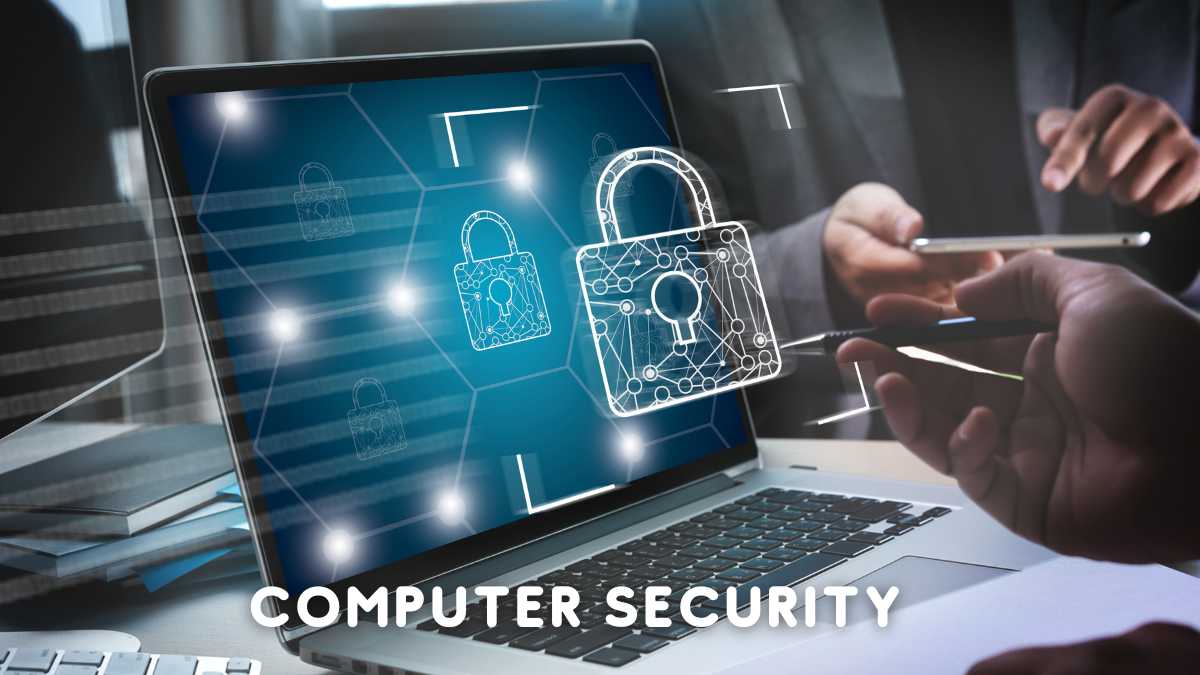Cybersecurity certifications validate expertise in protecting IT systems from digital threats. They are essential for professionals enhancing their cybersecurity credentials.
As the digital landscape evolves, the demand for skilled security professionals increases. Obtaining a cybersecurity certification can be a critical step for IT professionals seeking to prove their capabilities in this field. It provides industry recognition and often leads to career advancement.
These certifications range from entry-level to expert, with each focusing on various aspects of cybersecurity, such as network security, ethical hacking, information assurance, and forensics. Employers typically look for these certifications to ensure their staff can handle complex security challenges. Pursuing certifications from recognized bodies, like CompTIA, ISC², or EC-Council, can significantly bolster one’s profession in the cybersecurity industry.
The Importance Of Cybersecurity Certifications

Cybersecurity Certifications are crucial in today’s tech-focused world. They prove skills and knowledge. As cyber threats grow, staying certified is key. It’s about trust, skill, and staying current. With certifications, professionals boost their careers and companies strengthen security.
Elevating Credibility In The Tech Industry
Cybersecurity certifications create trust. They show commitment to security. When hiring, companies look for these certifications. It tells them you are serious about protection. Certs often mean better jobs and salaries. Having them sets you apart from others.
Staying Ahead Of Evolving Digital Threats
The digital landscape changes fast. New threats emerge all the time. Certifications keep you ahead. They teach the latest defense techniques. Learning never stops. With each certificate, you’re more ready for these threats. You become the expert others rely on.
Top Certifications To Consider
As the digital world grows, so does the need for strong cybersecurity. Individuals aiming to enter this critical field should consider gaining professional certifications. These certifications validate skills and understanding. They highlight expertise to employers. Below are some top certificates in cybersecurity to consider. Gearing up with the right certification can set you apart in this competitive arena.
Certified Information Systems Security Professional (CISSP)
The CISSP stands as a prestigious credential. It shows high-level security knowledge. It is ideal for experienced professionals. Eight domains of information security are covered. CISSP holders are sought after for their skills. They often land roles including manager and director positions.
- Years of Experience Required: Five years in two or more of the eight domains.
- Focus Areas: Security and Risk Management, Asset Security, Security Architecture, and more.
Certified Ethical Hacker (ceh)
The CEH certification gives professionals the skills to think and act like hackers. Ethical hackers use these skills for good. They test and secure systems from real-world attacks. This certificate is practical for those who protect systems by understanding the techniques hackers use.
| Years of Experience Required | Key Skills |
|---|---|
| Two years in IT security | Penetration testing, intrusion detection, and security laws. |
Getting Started With Cybersecurity Certifications

Embarking on your cybersecurity certifications journey is an exciting step towards a robust career. These credentials often separate experts from novices. Whether you’re a beginner or a tech enthusiast eyeing a cybersecurity role, the right certifications can open doors to vast opportunities. Let’s explore how to kick off this venture with ease and confidence.
Assessing Your Current Skill Level
Recognizing your existing strengths and weaknesses is crucial. Start by listing all your technical know-how. Consider referencing job descriptions for roles you find intriguing. They often outline the necessary skills expected of candidates. This can help gauge where you stand. If gaps become apparent, don’t fret. Identifying them is the first step toward filling them.
| Skill Category | Your Proficiency |
|---|---|
| Network Security | |
| System Administration | |
| Incident Response |
Use online quizzes and self-assessment tools to verify your understanding. Enroll in foundational courses if you’re starting from scratch. Cybersecurity is a vast field with endless learning avenues.
Creating A Learning Roadmap
After pinpointing your current skills, chart a learning roadmap. A well-defined plan paves the way for systematic progress. Start with the basics if you’re new to this realm. CompTIA Security+ is an ideal starting point.
- Identify the certification that aligns with your career goals.
- Set a realistic timeline for study and exam preparation.
- Allocate daily or weekly hours dedicated to learning.
Incorporate a mix of theoretical knowledge and hands-on practice. This blend is essential for mastering cybersecurity concepts. Utilize resources like online courses, study guides, and practice tests. Join forums or study groups to exchange insights and stay motivated.
- Entry-level certifications: CompTIA Security+, CISCO’s CCNA
- Intermediate certifications: CISSP, CEH
- Advanced certifications: OSCP, CISSP-ISSAP
Stay persistent and adaptable as you embark on this learning journey. Cybersecurity is dynamic; emerging technologies and threats make it a field that necessitates continual growth and learning.
Studying For Cybersecurity Exams

Cybersecurity certifications are key to advancing in the tech world. Each exam requires focus, dedication, and smart study practices. Start your journey with effective strategies and utilize the wealth of online resources. Below, let’s unlock the secrets to successfully studying for these challenging exams.
Effective Study Strategies
Creating a study plan is crucial. It ensures you cover all topics. Stick to your schedule. Use timers to manage study sessions. Break big topics into smaller chunks. This makes them less overwhelming.
Practice tests help you get comfortable with the exam format. They show what areas need more work. Mix up how you study. Don’t just read; write notes, teach concepts aloud, or draw diagrams.
- Review regularly. This helps information stick.
- Group study sessions can offer different perspectives.
- Physical and mental health are part of studying smart. Sleep well. Eat healthily. Take breaks.
Leveraging Online Resources And Communities
The internet is full of study aids for cybersecurity exams. Video tutorials, forums, and practice exams are all at your fingertips. Join communities like Cybrary or Reddit’s r/netsecstudents. They offer tips from others who’ve taken the exams.
Use flashcards from sites like Quizlet to memorize keys. Subscribe to cybersecurity podcasts. They can explain complex concepts in simple terms. Follow industry experts on platforms like LinkedIn and Twitter. They often share insights and study resources.
| Resource Type | Description | Platform |
|---|---|---|
| Videos | Visual explanations of concepts | YouTube |
| Discussion Boards | Peer support and QA | Reddit, Discord |
| Flashcards | Key term memorization | Quizlet |
| Podcasts | Auditory learning and updates | iTunes, Spotify |
Most importantly, always look for official guides or materials. These come directly from the certification bodies. They ensure the information is accurate for your specific exam.
The Role Of Practical Experience

The Role of Practical Experience in cybersecurity certification programs cannot be overstated. While theoretical knowledge provides the fundamentals of cybersecurity principles, practical experience is the keystone that cements this knowledge into actionable skills. It is the hands-on application that transforms a learner into a proficient practitioner, capable of facing real-world challenges head-on.
Gaining Real-world Skills Through Labs
Labs offer a controlled environment for aspiring cybersecurity professionals to apply their theoretical knowledge. Engaging in cybersecurity labs enables individuals to:
- Experiment with different techniques and tools.
- Understand the impact of security measures.
- Develop problem-solving skills critical in cyber incident scenarios.
These labs often simulate network environments, cyber attacks, and defense strategies that one is likely to encounter in the field. This simulation provides invaluable experience that textbooks alone cannot fully convey.
Participating In Cybersecurity Internships
Internships are a gateway to the industry, offering a rare glimpse into the daily operations of cybersecurity teams. They can facilitate the transition from academic study to professional practice, helping to bridge the gap between theory and real-world application.
Through internships, students gain:
- Access to mentorship from experienced professionals.
- The chance to observe and participate in live projects.
- Opportunities to build a professional network which can be invaluable for future career prospects.
Cybersecurity internships can sometimes lead to job offers or recommendations that pave the way for a successful career in the field.
Passing The Certification Tests
Achieving a cybersecurity certification can propel your career to new heights. The challenge lies in not just understanding the material, but also passing the rigorous certification tests designed to assess your knowledge and skills.
Exam Preparation Tips
A solid exam preparation strategy is your blueprint for success. Follow these tips, and you’ll set yourself up for a positive outcome:
- Create a study schedule and stick to it. Consistency is key.
- Use a variety of study materials, including books, online courses, and practice exams.
- Form or join study groups to learn with peers.
- Focus on weak areas, dedicating more time to challenging topics.
- Stay updated on the latest industry developments to enhance understanding.
Handling Test Day Pressures
Test day might feel overwhelming, but these strategies will help you manage the pressure:
- Ensure a good night’s sleep the day before the exam.
- Healthy eating can sharpen focus. Choose light meals and snacks.
- Plan to arrive early at the test center. Rushing leads to anxiety.
- Bring all necessary documents, including identification and admission ticket.
- Take deep breaths and stay calm during the exam. Slow down and read each question carefully.
Maintaining Certification Validity
Maintaining Certification Validity is crucial for cybersecurity professionals. It proves your commitment to the field. It also ensures your skills stay sharp and relevant. Let’s explore how you can keep your cybersecurity certifications up to date.
Completing Continuing Education Credits
Earning Continuing Education Credits (CECs) or Continuing Professional Education (CPE) credits is essential. These credits are part of the recertification process. They ensure you remain knowledgeable.
- Attend webinars and workshops.
- Participate in industry conferences.
- Complete online courses or training programs.
Track your credits meticulously.
| Activity | Credits Earned |
|---|---|
| Webinars | 1 CEC per hour |
| Workshops | 3 CECs per workshop |
| Online Courses | Varies |
Staying Current With Technology Trends
Technology evolves rapidly. Staying updated is non-negotiable.
- Read industry publications.
- Follow cybersecurity blogs.
- Join online forums and communities.
Engage with peers and experts. Test new tools and technologies.
Understand the latest cyber threats.
Leveraging Certifications For Career Growth
Cybersecurity certifications work magic for career advancement. They validate skills and show commitment to the field. This boosts job prospects and potential earnings. Now, let’s look at key ways certifications can help you climb the career ladder.
Positioning Yourself For Promotions
Earning a cybersecurity certification can be a game-changer. It positions you for internal promotions. Certifications act as proof that you have the latest skills. Employers often prefer certified professionals for lead roles.
- Competitive edge: Highlight new credentials in performance reviews.
- Visibility: Certifications can make you stand out in your organization.
- Preparedness: They ensure you’re ready for complex security challenges.
Networking And Professional Development
Certifications provide more than knowledge. They also connect you with a community of professionals. These contacts can be invaluable for growth and job opportunities.
- Join cybersecurity forums and groups connected to your certification.
- Engage in discussions and share insights.
- Participate in webinars and workshops for continuous learning.
Comparing Offers And Salary Negotiation
Certified professionals often receive better offers. Knowledge of market rates is crucial for negotiations. Use certification as leverage to negotiate higher salaries.
| Certification | Salary Range |
|---|---|
| Certified Ethical Hacker (CEH) | $70,000 – $100,000 |
| Certified Information Security Manager (CISM) | $100,000 – $140,000 |
Be confident in stating your worth. Use your certifications as evidence of your expertise. Employers value certified talent and are often willing to adjust their offers accordingly.

Credit: www.newhorizons.com
Frequently Asked Questions Of Cybersecurity Certifications
What Is The Best Certification To Start With In Cyber Security?
The CompTIA Security+ certification is often recommended for beginners in cyber security. It provides a solid foundation and is widely recognized in the industry.
What Is The Most Sought-after Cybersecurity Certification?
The Certified Information Systems Security Professional (CISSP) is the most sought-after cybersecurity certification. It validates advanced security knowledge and skills.
Is Cyber Security Certificate Worth Anything?
Yes, a cyber security certificate can be valuable. It demonstrates expertise, aids career advancement, and increases marketability to employers.
Can I Get A Cybersecurity Job With Just Certifications?
Yes, cybersecurity jobs are attainable with certifications, as they demonstrate specialized knowledge and skills that employers value greatly. However, relevant experience often strengthens your job prospects significantly.
Conclusion
Embarking on a cybersecurity career path requires dedication and education. The right certification can be a game-changer, offering both knowledge and recognition in this dynamic field. As we chart our digital future, these credentials become not just beneficial, but essential.
Stay informed, stay secure, and let your expertise flourish with a cybersecurity certification that suits your career goals.



